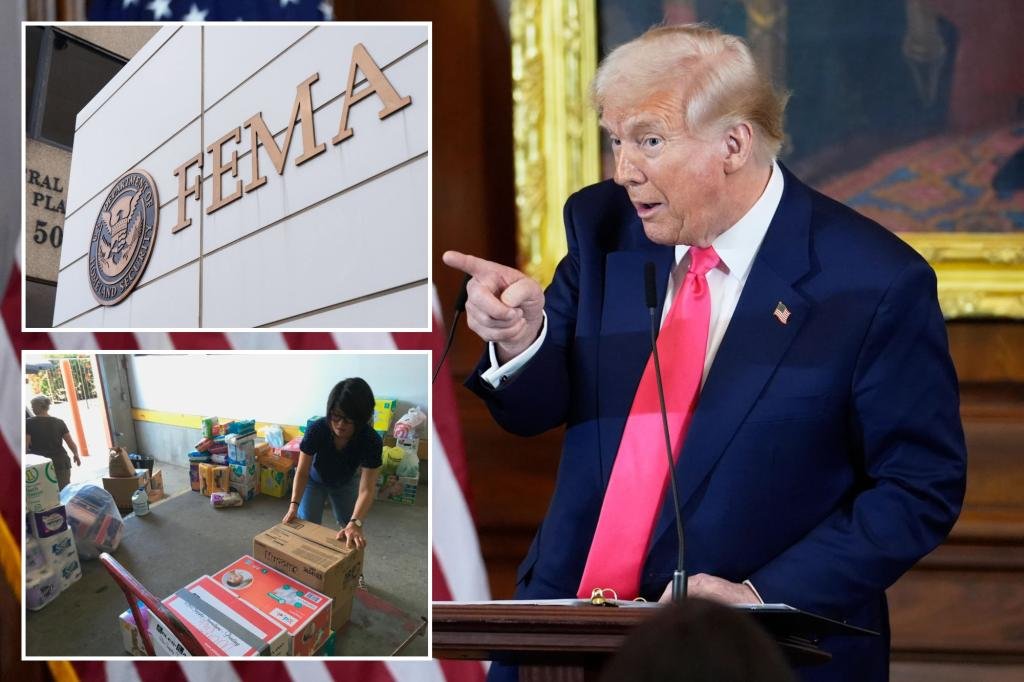Trump Administration Reviews Migrant Aid Organizations Amid Legal Concerns
The recent move by the Trump administration to scrutinize organizations providing aid to migrants marks a significant shift in immigration policy. This review by the Department of Homeland Security (DHS) raises questions about whether federal funds allocated for migrant assistance may have been misused, leading to potential violations of U.S. immigration laws, specifically Section 1324 of the U.S. Criminal Code.
Background on the Review
Cameron Hamilton, the acting administrator of the Federal Emergency Management Agency (FEMA), expressed "significant concerns" regarding the use of federal grants that were intended to assist with the surge of migrants during former President Joe Biden’s administration. The letter, dated recently and shared with major news outlets, requests that organizations receiving funds through FEMA’s Shelter and Services Program provide detailed documentation of the services rendered to migrants. This documentation must include the names and contact details of those served, along with an itemized list of the services.
Funding Under Review
The current review places a hold on funding, urging organizations to comply within a 30-day window. While the letter does not directly threaten criminal prosecution, it intimates that violations of the smuggling law could lead to serious legal repercussions. Notably, executive officers of these organizations are required to sign sworn statements confirming they are not aware of any illegal activities within their operations.
The Impact on Migrant Aid Organizations
This examination of migrant assistance organizations appears to be part of a broader strategy targeting groups that assist individuals crossing the U.S.-Mexico border. Many migrants arrive in the U.S. overwhelmed and with limited resources, making these aid organizations crucial for their survival and mobility.
Examples of Affected Aid Organizations
FEMA allocated approximately $641 million in the 2024 fiscal year to various state and local governments, as well as numerous organizations including major city administrations in New York, Philadelphia, Chicago, and Denver. Prominent nonprofits like the United Way of Miami, the San Antonio Food Bank, and various chapters of Catholic Charities also received funding.
Comparisons to State-Level Actions
Texas Governor Greg Abbott, aligned with the Trump administration’s hardline immigration stance, previously attempted to challenge migrant aid groups within the state. However, his efforts faced legal obstacles. The recent federal actions echo Abbott’s approach, indicating a coordinated effort to limit state and local cooperation regarding federal immigration enforcement.
Previous Legal Challenges
In a related development, the Trump administration filed a lawsuit against Chicago over local laws perceived as obstructing federal immigration enforcement. Such actions underline a larger trend of escalation in immigration-related legal confrontations at both state and federal levels.
Conclusion
The federal review of organizations that aid migrants highlights a tense landscape in U.S. immigration policy. As the Trump administration places a spotlight on potential violations related to migrant assistance, organizations providing crucial support to vulnerable populations must navigate new legal complexities. It remains to be seen how this will impact the ongoing efforts to provide humanitarian assistance to those seeking refuge in the United States.
For more information on U.S. immigration laws, you can visit the U.S. Citizenship and Immigration Services or refer to the American Civil Liberties Union for insights into immigrant rights and legal challenges facing organizations providing aid.


